Mario Bros. (series)
From the Super Mario Wiki, the Mario encyclopedia
Jump to navigationJump to search
- This article is about the series of games based around the arcade Mario Bros. For the series based around Super Mario Bros., see Super Mario (series).
Template:Series-infobox The Mario Bros. series is a video game series of the Mario franchise, deriving from the original 1983 arcade game of the same name.
List of games
| Title | |
|---|---|
| Cover, original release and system | Synopsis |
| Mario Bros. | |
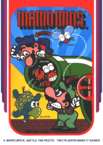 Template:ReleasedArcade Machine |
Mario Bros. is the second arcade game starring Mario as a protagonist, coming after Donkey Kong. The game's main attraction was featuring cooperative two-player functionality with Mario's recently introduced brother, Luigi. The two are in a sewer battling various enemies leaking from the plumbing, bashing the floors underneath them to stun them before kicking them away. Many aspects from this game recur in later Mario franchise games, notably coins, pipes, POW Blocks, and enemy turtles. The game has been ported innumerable times to various systems. |
| Mario Bros. Special | |
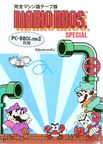 Template:ReleasedPC |
Mario Bros. Special is a Japan-only computer game developed by Hudson Soft. It has altered gameplay with stages where Mario or Luigi must complete specific tasks, like pressing switches or collecting $ symbols. |
| Punch Ball Mario Bros. | |
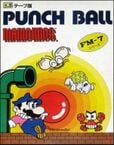 Template:ReleasedPC |
Punch Ball Mario Bros. is another Japanese computer-based sequel by Hudson Soft. It features stone "Punch Balls" that must be thrown at enemies to stun them. |
| Kaettekita Mario Bros. | |
| File:Kaettekita Mario Bros. possible boxart.jpg Template:ReleasedFamily Computer Disk System |
Kaettekita Mario Bros. is a Japan-only game for the Family Computer Disk System, being mostly a more graphically accurate port of the original arcade game than the 1983 Family Computer and Nintendo Entertainment System port. However, it also has new features, such as the ability to change direction mid-jump and a slot machine minigame. Many of its graphical enhancements were used in a 1993 European NES port of Mario Bros. |
| Mario Clash | |
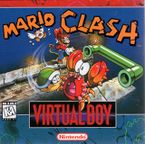 Template:ReleasedVirtual Boy |
Mario Clash, unlike its predecessors, only stars Mario, but otherwise keeps the same gameplay formula. It takes place in the Clash House Tower, where Mario needs to defeat invading enemies in both the playing field and in the background using the Virtual Boy's depth and Koopa shells. |
Related games
| Title | |
|---|---|
| Cover, original release and system | Synopsis |
| Mario Bros (Game & Watch) | |
 March 14, 1983 Game & Watch |
The Game & Watch Mario Bros. was released before the arcade game (and as such is technically the first appearance of Luigi), though it also started development later. Gameplay-wise, the games have nothing in common, with the Game & Watch game featuring Mario and Luigi working in a bottling plant, with one off the brothers appearing on each of its two screens. It was ported to both Game & Watch Gallery 3 and Game & Watch Gallery 4. |
| Super Mario Bros. 3 | |
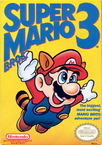 Template:ReleasedNintendo Entertainment System |
Super Mario Bros. 3 features a battle mode called "Classic Mario Bros." which is an altered version off the original. It is the first rendition to replace Shellcreepers with Spinies. A further edited version appears in the Super Mario All-Stars version of Super Mario Bros. 3. |
| Super Mario Advance | |
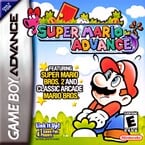 Template:Released Game Boy Advance |
Super Mario Advance also features an alternate mode based on Mario Bros., having both a normal mode and a battle mode. Additionally, it can have up to four players and features some other new elements, such as trash cans and Bowser. This mode returns in every other Super Mario Advance game as well as Mario & Luigi: Superstar Saga. |
| Super Mario 3D World | |
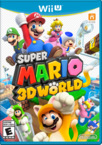 Template:ReleasedWii U |
Super Mario 3D World features an alternate mode with an edited port of the first NES version, called "Luigi Bros." It replaces Mario with Luigi's modern colors, keeping the original Luigi the same. |